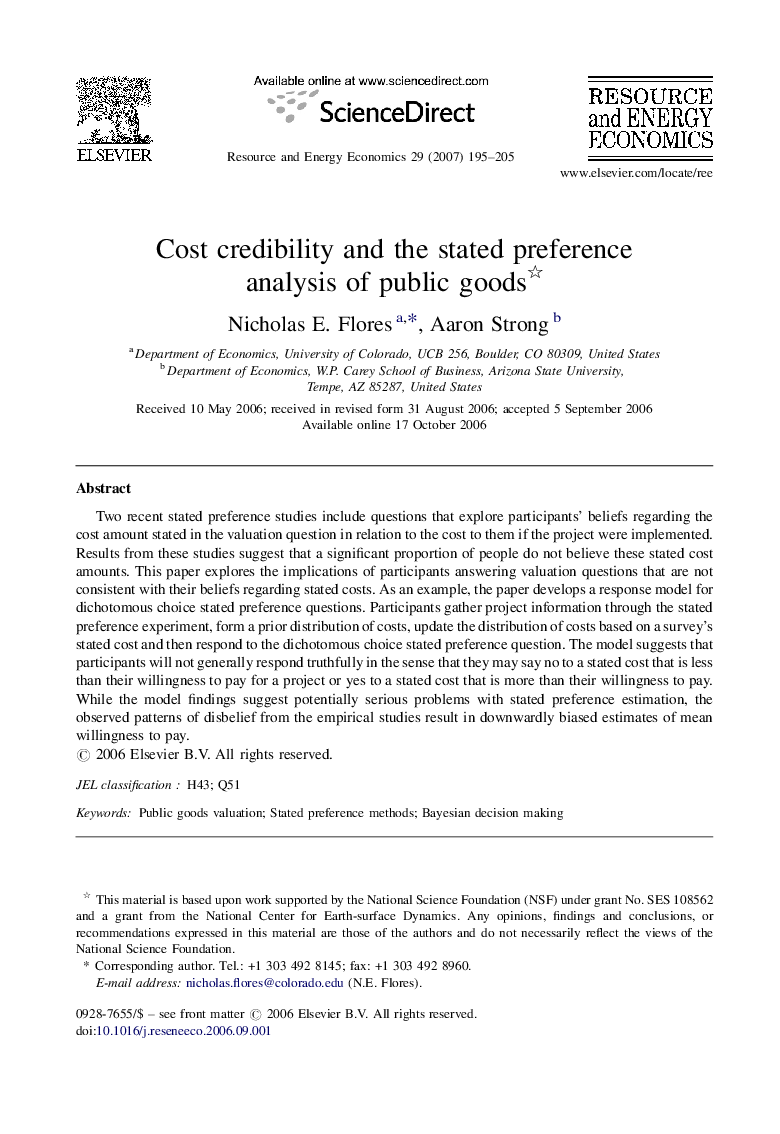| Article ID | Journal | Published Year | Pages | File Type |
|---|---|---|---|---|
| 985196 | Resource and Energy Economics | 2007 | 11 Pages |
Two recent stated preference studies include questions that explore participants’ beliefs regarding the cost amount stated in the valuation question in relation to the cost to them if the project were implemented. Results from these studies suggest that a significant proportion of people do not believe these stated cost amounts. This paper explores the implications of participants answering valuation questions that are not consistent with their beliefs regarding stated costs. As an example, the paper develops a response model for dichotomous choice stated preference questions. Participants gather project information through the stated preference experiment, form a prior distribution of costs, update the distribution of costs based on a survey's stated cost and then respond to the dichotomous choice stated preference question. The model suggests that participants will not generally respond truthfully in the sense that they may say no to a stated cost that is less than their willingness to pay for a project or yes to a stated cost that is more than their willingness to pay. While the model findings suggest potentially serious problems with stated preference estimation, the observed patterns of disbelief from the empirical studies result in downwardly biased estimates of mean willingness to pay.
